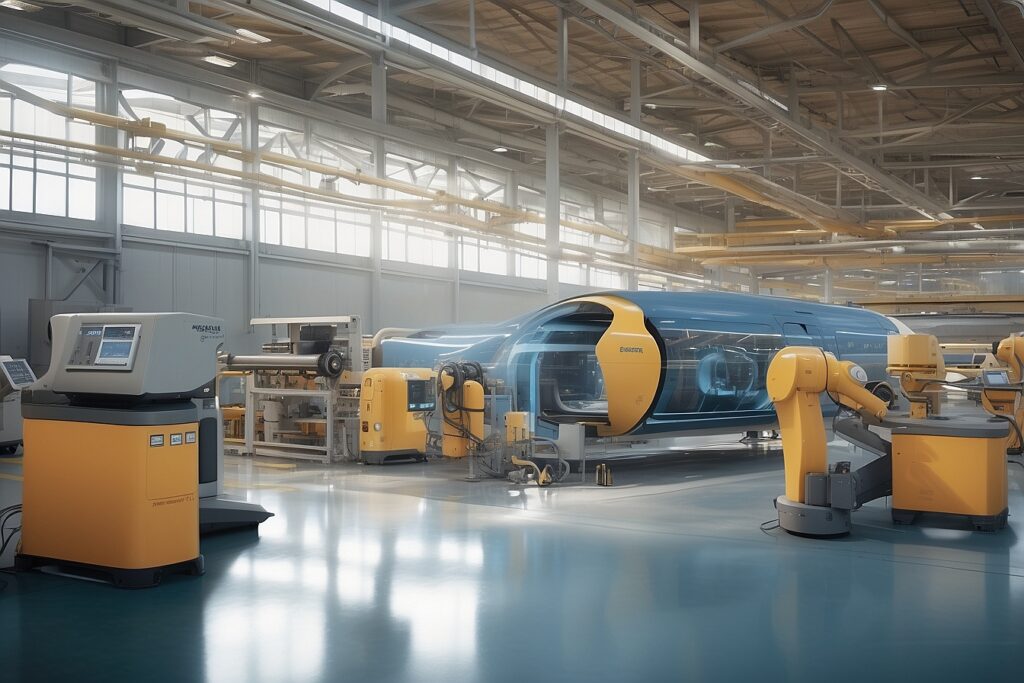Industry leaders convene at the 3DEXPERIENCE WORLD 2024 in Dallas to explore the integration of AI and simulation into design processes.

The manufacturing sector is renowned as one of the largest contributors to industrial waste globally. Recent reports from the World Economic Forum indicate that it has generated waste at a rate 18 times higher than municipal solid waste or typical household garbage compositions.
However, there’s promising news on the horizon. Over the past few years, a significant portion of the world’s manufacturers have embraced digital solutions in their design processes to mitigate the generation of solid waste.
During the 25th 3DEXPERIENCE WORLD event held in Dallas, Dassault Systèmes boldly championed artificial intelligence (AI) as a transformative technology poised to elevate the manufacturing sector and revolutionize solid waste management processes.
Bernard Charles, Executive Chairman of Dassault Systèmes, emphasized the importance of reimagining waste as a resource during his address at the event held from February 11th to 14th. He articulated, “One day you will have to design your waste…So [the waste] can be a resource for someone else; this is what is happening in the future of design around the world.”
Global waste generation stands at a staggering 2.01 billion tonnes of municipal solid waste annually, with a substantial portion, estimated at least 33%, not managed in an environmentally safe manner, as per the World Bank.
Since 2020, a remarkable 92% of manufacturers have identified “improving operational efficiency” as their primary focus, with 67% actively embracing digitalization initiatives to achieve this goal.
The 2021 Digital Transformation Assessment report commissioned by IBM highlights widespread transformations across various sectors, all facilitated by digital tools. Manufacturers, inspired by these advancements, are now poised to embark on a similar journey.
According to the report, manufacturers are leveraging the data and insights they’ve gained to enhance operational efficiency significantly. This shift is not just about selling products but also about delivering experiences to consumers, marking a fundamental transition in business models.
From the vantage point of Dassault Systèmes, Charles elaborated on the evolution of design processes. He underscored the integration of artificial intelligence (AI) and simulation within the 3DEXPERIENCE Works platform, emphasizing how these technologies are reshaping traditional approaches to design and innovation.
Advancing Design Manufacturing
The integration of modeling, simulation, and AI within the 3DEXPERIENCE Works platform signals a paradigm shift in design workflows across diverse industries represented by its 12 brand names.
Charlès painted an evocative picture of the future where AI-driven tools empower designers to swiftly create, optimize, and evaluate design alternatives.
From exploring eco-friendly materials to conducting virtual twin simulations, the showcased possibilities offer a glimpse into the transformative potential of technology.
Gian Paolo Bassi, the senior vice president of 3DEXPERIENCE Works and customer role experience at Dassault Systèmes, reiterated the company’s commitment to innovation, reflecting on SOLIDWORKS’ journey over the past 25 years.
From its humble origins to becoming a cornerstone of modern design, SOLIDWORKS’ 2D and 3D capabilities have continuously evolved to cater to its diverse user base.
Addressing the audience at the Dallas event, Chief Executive Officer of SOLIDWORKS, Manish Kumar, emphasized the evolving nature of design.
He highlighted the platform’s versatility, allowing users to seamlessly control collaborative design processes across different devices, irrespective of their operating systems.
Kumar underscored the longstanding presence of AI within SOLIDWORKS, citing tools like Made Helper, Selection Helper, Sketch Helper, and auto-detection of annotations readily available in the 3DEXPERIENCE Works platform.
He also unveiled a range of upcoming AI-driven capabilities, including image-to-sketch command prediction and auto-drawing creation, poised to revolutionize design processes. Notably, the company teased an upcoming feature utilizing AI to generate entire drawings based on user models.
Drawing parallels with his personal experience with digital photos and automation, Kumar likened data management within their platform to the seamless organization facilitated by services like Google.
“Freedom from handling complex interconnected data is akin to the freedom offered by digital photos. Our AI-driven organization of your data allows you to focus on innovation, eliminating concerns about safety, security, and backup locations,” Kumar concluded.

Regional Success Stories
At the forefront of discussions during the convention were practical implementations of cutting-edge technologies, with a particular focus on highlighting customer success stories. Among the notable clients featured were India-based QARGOS and Tigoona.
QARGOS, a prominent motor vehicle manufacturing company, seized the spotlight by unveiling its latest innovation, an e-scooter, at the 3DEXPERIENCE World event.
Integral to their product development process is the integration of advanced structural battery, thermal, and electromagnetic simulations, which play a pivotal role in enhancing and refining the design of their upcoming product.
Tigoona, on the other hand, is dedicated to crafting mobility solutions tailored explicitly for street entrepreneurs in India. Their initiative revolves around a design-centric approach aimed at elevating the quality of life and income opportunities for street entrepreneurs while rejuvenating last-mile connectivity in urban areas.
Rooted in three core pillars – better mobility, improved visibility, and elevated retailing standards – Tigoona’s efforts underscore the transformative potential of design-led solutions.
Another noteworthy success story hails from Japan-based Nagano Automation, leveraging the advanced technology of the 3DEXPERIENCE Works platform to precisely control liquids across diverse fields. From ink injection for printers to liquid crystal injection in the early stages of production, Nagano Automation harnesses the platform’s capabilities for various applications.
Furthermore, they utilize the platform for manufacturing equipment related to secondary batteries and other purposes, showcasing its versatility and adaptability.
The overarching message resonating from these success stories is clear: the future of design is collaborative, sustainable, and technology-driven.
As the industry continues to evolve, the ethos of innovation and community will serve as catalysts propelling design forward not only for the next 25 years but beyond.
This sentiment was underscored by Bassi as he addressed the audience, emphasizing the importance of learning from experiences, extracting knowledge and know-how, and fostering new experiences while safeguarding intellectual property, data, and sovereignty, echoing the sentiments of Albert Einstein, who regarded experience as the ultimate knowledge.



